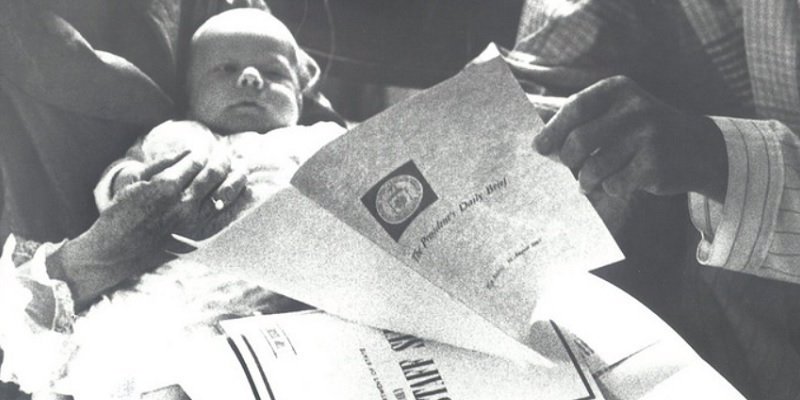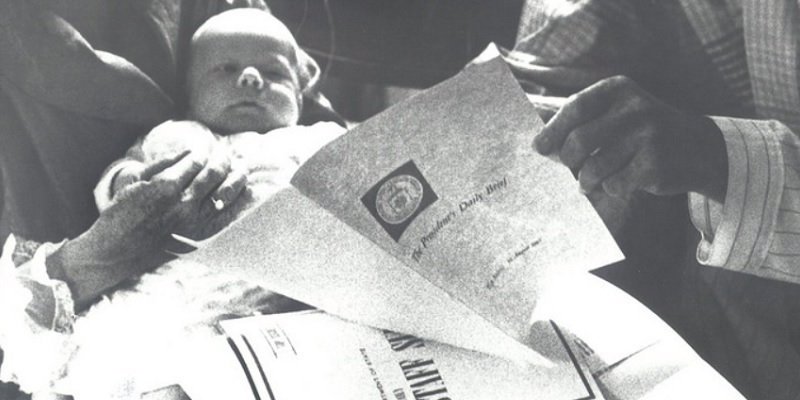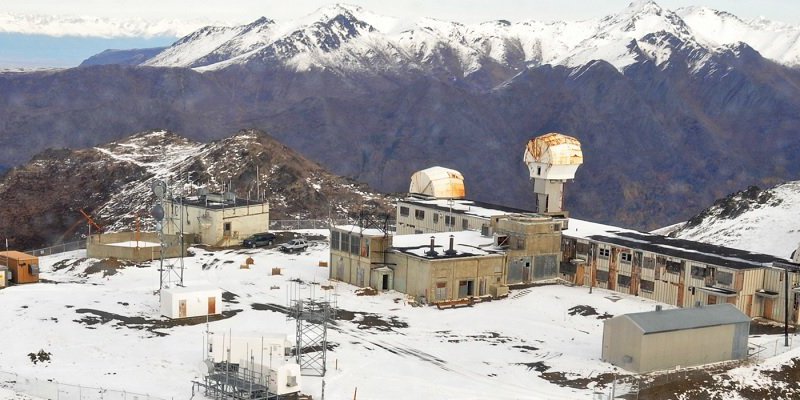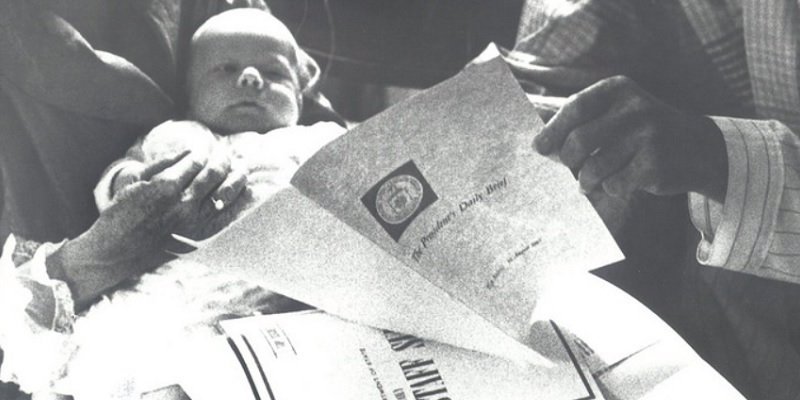-

The FBI tried to bust Abbie Hoffman for publishing public records
On what would have been the radical’s 80th birthday, we look back at one of the strangest incidents in Abbie Hoffman’s ten-thousand plus page FBI file: when they tried to bust him for the “anti-American” publishing of the government’s own records.
-

Why do Massachusetts municipalities make meeting transparency harder than it has to be?
Getting several years of meeting minutes from Massachusetts cities and towns isn’t easy - but it would be if each municipality kept up with reviewing and releasing non-exempt minutes regularly. Like they’re legally required to do.
-

MuckRock goes open source
Starting today, MuckRock is now free open source software, licensed under the GNU Affero General Public License for anyone to read, use, and modify.
-

FOIA Machine joins MuckRock to make government more open for everyone
With fake news seemingly everywhere and government secrecy becoming the norm, public records are more important than ever. To help, we’re pleased to share that FOIA Machine is joining MuckRock. The two sites will continue to operate independently to offer easy, accessible tools to help reporters, researchers, and the general public file, track, and share their public records requests.
-

With Trump, the private prison industry is stronger than ever
Just three months ago, private prisons were feeling the sting of a Justice Department report that became ammunition for a phase-out. But the renewed feeling of a Reagan-era, privatization redux is good news for a sector now poised for a new uncertain reign of law and order.
-

He’s in charge: FBI file reveals Alexander Haig as architect of the Saturday Night Massacre
As a fixture in both the civilian and military worlds of politics, the FBI file for General Alexander Haig promised to be quite interesting. Although much of the file focuses on standard background issues and threats against the general several new facts stand out. One section, in particular, sheds new light on the Watergate scandal and the ensuing Saturday Night Massacre.
-

Since assassination is illegal, the CIA says it has no records on how it would do it
Last year, MuckRock user Jens Porup filed a FOIA with the CIA for a list of all poisons used in covert assassinations. Although Porup could have reasonably expected this request to be rejected under about a half-dozen exemptions, the Agency still managed to throw him a curveball: they simply responded that assassinations were illegal.
-

OGIS’ new chief, Secret Service’s vanishing laptops, and more FOIA news
Just because America was taking some time off to relax after a grueling election season doesn’t mean that transparency can afford to take a nap. Well, OK, some releases were delayed as agencies shut their doors for the Thanksgiving holiday, but the releases made earlier in the week still made plenty of news.
-

Take a minute to thank a FOIA officer who helped open up government
As challenging as public records can be, it’s an incredibly important part of the democratic process. And it wouldn’t be possible without government officials doing their job, and often going above and beyond in the name of transparency. Take a moment to say thanks.
-

MBTA secrecy obvious in abysmal appeals record
Financed in major part with state funds and crucial to the economic viability of the area, the MBTA’s centrality to life in a major East Coast hub makes it a crucial subject for information updates. Of course, don’t be surprised that getting records from them can also be a pain.
-

Add “space” to the list of industries looking to get a Trump presidency push
Last week, Robert Bigelow, founder of Bigelow Aerospace encouraged broader spending in orbit. He suggested doubling NASA’s budget, which would bring the agency’s cut to a full one percent of federal spending. Docs released as part of the company’s BEAM project help show the regulatory concerns that leave space tourism an international grey zone.
-

Cooking with FOIA: Concert riders
In this edition of Cooking with FOIA, MuckRock’s series looking at recipes uncovered via the public records process, we dig up the delectable dishes buried in concert riders from public universities.
-

Which of the FBI’s seven types of protester are you?
As part of their excellent ongoing coverage of the #NoDAPL protests, the folks at Unicorn Riot received a copy of the FEMA crowd control manual being passed around to local cops. In the section of “crowd dynamics,” the manual identifies the seven “types” of protesters recognized by the FBI. Let’s find out which one you are!
-

MuckRock needs your help to keep filing in all 50 states
Election time excitement got you feeling a little more patriotic than usual? Looking for a way to help but not sure you have the time? Well, MuckRock is looking for a few good people to do a big service requiring little effort: serve as our resident proxies.
-

From Nazis in LA to Christmas tree scandal, stories FOIA told this week
Our weekly series looking at the stories public records made possible, now with 100 percent more Canada.
-

Plugging the gaps: the fight to define what is a public record
The question: “What is a record?” needs to be asked and defined every time a new medium comes up, and policies need to be put in place to govern them, efficiently and transparently.
-

“This is offencive.” Inside Amy Schumer FCC complaints
Last year, Emily Hopkins filed a FOIA with the FCC for all complaints received regarding Comedy Central’s Inside Amy Schumer. Despite the comedian’s best efforts, the FCC could only find three.
-

Get around MuckRock faster and easier with better searching, filtering, and navigation
We’re really excited to have released a slate of new features that will make navigating this site much easier. This includes more relevant search results, more powerful filtering options, and a simplified menu structure.
-

The FBI’s Cold War contingency plan was largely motivated by spite
FBI files released earlier this year show the Bureau’s plan to build a secret network of “stay behind” agents in Alaska that would become active in the event of a Communist invasion. The file also reveals that Bureau personnel thought the biggest advantage to this plan was that it would screw over the CIA, ensuring the Bureau’s supremacy in their ongoing feud with other intelligence agencies.
-

Surveillance awareness begins at home
Whether it be through software like Geofeedia or SnapTrends, which help police scan and correlate information from multiple outlets using geolocation information, or via their own personal profile pages, we want to know what baggage an online presence brings in this new era.
-

A guide to public records and the Trump Presidential Transition
Now that Donald Trump is President Elect of the United States, a whole new world of FOIA possibilities begins to open up. Here’s your guide on what you can request from the upcoming administration.
-

The cringeworthy comedy of J. Edgar Hoover
A year before he died, J. Edgar Hoover tried something he hadn’t done before in his nearly five decades as FBI director. He tried to be funny.
-

Aurora: Homeland Security’s secret project to change how we think about cybersecurity
In 2007, Homeland Security ran a secret project called “Aurora” to test if hackers could exploit cybersecurity vulnerabilities to cause physical damage to American infrastructure. The project took a year to plan and lasted all of an explosive three minutes. It was a terrifying success.
-

From torture’s architects to legislator blackmail, stories FOIA told this week
A weekly series looking at the stories public records made possible.
-

Join us in fighting for transparency and accountability
Since 2010, MuckRock has helped thousands of journalists, activists, researchers, and members of the public file over 25,000 public records requests with one goal: To make government more transparent and our democracy more informed.